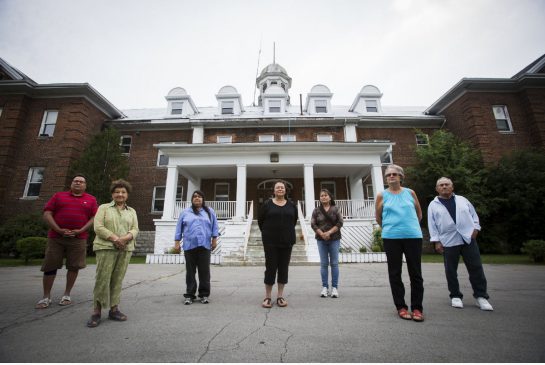Residential School Survivors Must Control Their Own Stories: Editorial
Toronto Star
They are survivors of Canada’s notorious residential schools. As First Nations children, many suffered psychological, cultural, physical and sexual abuse at the hands of a racist system designed to “take the Indian out of the child.” Many fought back heroically. The heart-wrenching testimony that many of them gave about their years of privation and worse in the schools — part of a process in which Ottawa and church groups have paid out $5 billion in compensation to 80,000 survivors — is sacred evidence, and a sacred trust. It is only fitting that Ontario’s highest court has just upheld the right of 38,000 survivors who sought specific compensation for sexual and other abuse through a special assessment process to decide individually over the next 15 years whether to preserve their stories in an archive. Otherwise the records will be destroyed. Granted, there is a compelling argument for preserving as much of the testimony as possible in the National Centre for Truth and Reconciliation archive as an indelible indictment of a shameful chapter in our collective history. The Star hopes that many survivors will agree, and deposit their records with the centre. The truth, in all its searing specificity, should not be lost to future generations. But Canada owes a duty of care, as well, to the survivors. As Chief Justice George Strathy wrote in a welcome 2-1 decision for the court of appeal this week, the Indian Residential Schools Settlement Agreement of 2006 created a framework for compensation and the preservation of records that was “guided by the principle that the survivors should control the fate of their own stories ... no one else could keep those stories against their wishes.” The honour of the Crown requires that principle be upheld. Moreover, a great deal already is on the record. “Many survivors — thousands—have chosen to share their stories,” the court noted. “Others have shared or will share some or all of their documents.” The special assessment process probed deeply into survivors’ lives, through cross-examination and documentation, casting light on painful details of sexual and other abuse. Survivors’ adult lives were also taken into account, as were family and sexual problems, medical conditions, finances and trouble with jobs and the law. Useful to historians as all this is, it would be wrong to re-victimize people by betraying a claims process that they were assured was confidential, and parading their grief against their wishes. As the Chief Justice noted, the settlement “put the survivors, not Canada and not anyone else, in control of their own stories.” It should be left in their hands.
|
.
Any original material on these pages is copyright © BishopAccountability.org 2004. Reproduce freely with attribution.
